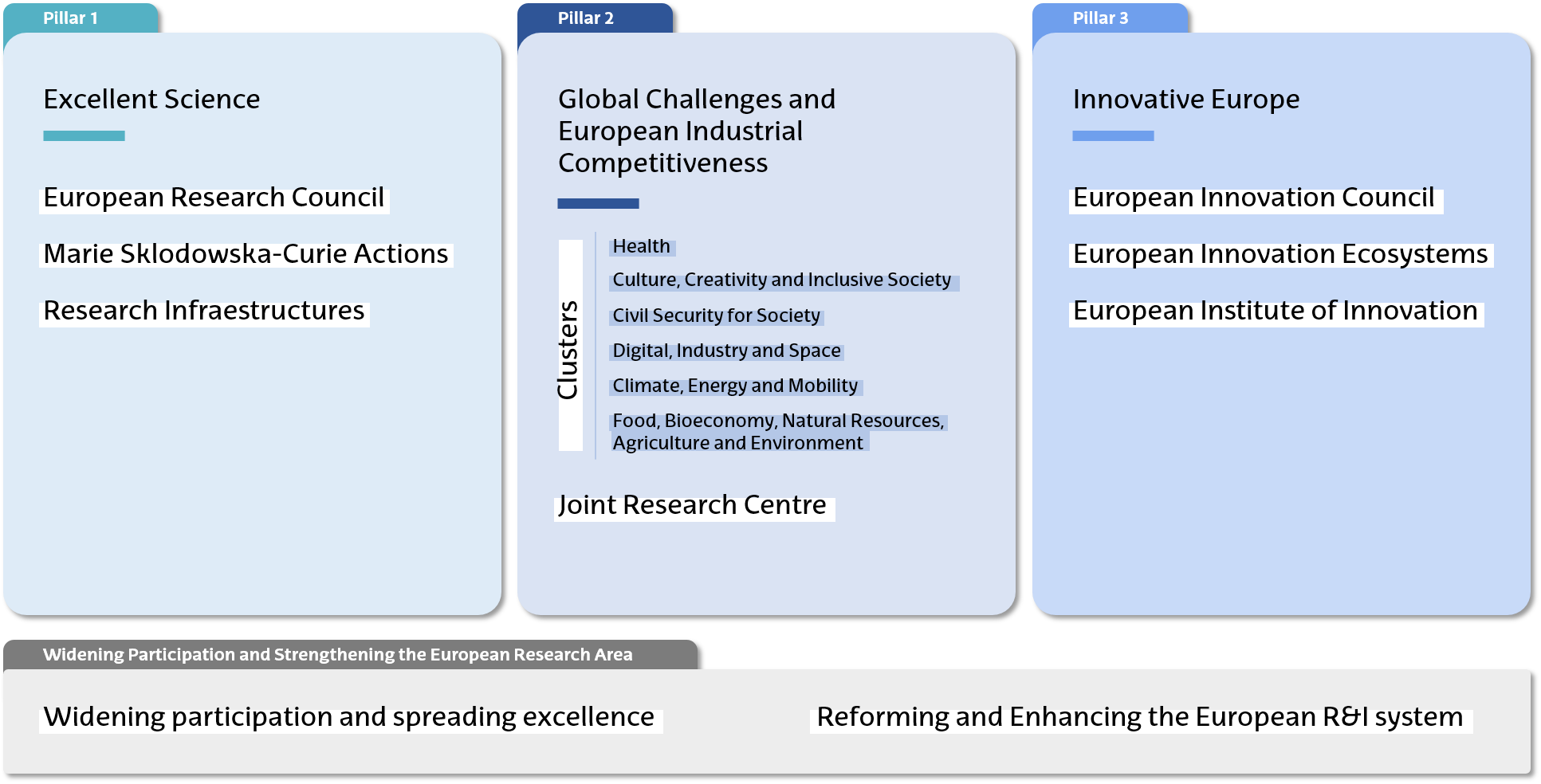Horizon Europe is the European Union’s seven-year research and innovation programme, running from 2021 to 2027. The programme’s general objective is to deliver scientific, technological, economic and societal impact from the Union’s investments in R&I, to strengthen the scientific and technological bases of the Union, and foster its competitiveness in all Member States. The programme is divided into 4 main pillars:

